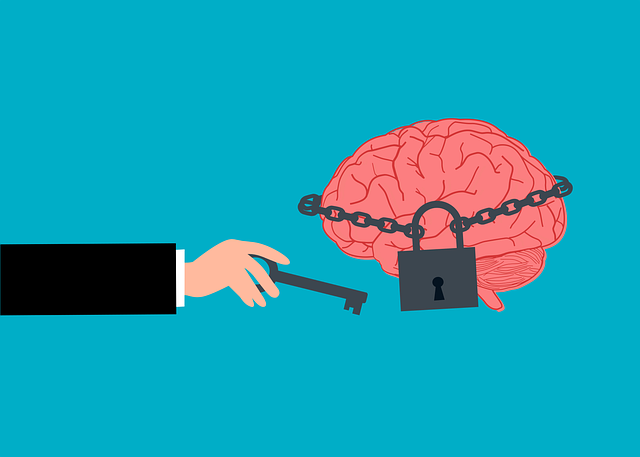Self-care is a proactive approach to mental well-being, focusing on physical, emotional, and psychological health. Superior Exposure and Response Prevention (SERP) Therapy is an evidence-based method that uses gradual exposure to anxiety-provoking situations and teaches effective coping mechanisms to improve long-term mental health outcomes. For healthcare providers, SERP can reduce anxiety, enhance resilience, and maintain work-life balance, benefiting both their well-being and patient care. Integrating self-care into daily life includes practical strategies like mindfulness, stress management workshops, exercise, adequate sleep, and balanced meals, fostering overall health and resilience.
In today’s fast-paced world, prioritizing self-care is essential for maintaining mental well-being. This article guides you on a journey towards enhancing your self-care practices with actionable strategies. We begin by demystifying self-care as the cornerstone of mental health. Subsequently, we delve into the transformative power of Superior Exposure and Response Prevention Therapy, offering a novel approach to overcoming fears. Finally, discover practical tips for seamlessly integrating daily self-care rituals, ensuring a holistic and sustainable wellness journey.
- Understanding Self-Care: The Foundation of Mental Well-being
- Unlocking the Potential of Superior Exposure and Response Prevention Therapy
- Practical Strategies for Integrating Self-Care into Daily Life
Understanding Self-Care: The Foundation of Mental Well-being

Self-care is a fundamental aspect of maintaining and enhancing mental well-being. It involves intentional actions taken to nurture one’s physical, emotional, and psychological health. By prioritizing self-care, individuals can build resilience, manage stress, and improve their overall quality of life. The concept extends beyond merely treating symptoms; it focuses on proactive strategies to foster a healthy mind and body connection.
In the context of mental health treatment, Superior Exposure and Response Prevention Therapy (SERPT) is an evidence-based approach that emphasizes self-care routine development. SERPT encourages individuals to gradually expose themselves to anxiety-provoking situations while learning effective coping mechanisms. This therapy facilitates resilience building by teaching clients to manage their responses, thereby reducing the impact of stressors on their mental health. Through structured programs designed to promote mental health education, individuals gain valuable tools to integrate self-care into their daily lives, ensuring better long-term mental health outcomes.
Unlocking the Potential of Superior Exposure and Response Prevention Therapy

Superior Exposure and Response Prevention (SERP) Therapy is a powerful tool in the realm of mental health treatment. This innovative approach focuses on helping individuals confront their fears and anxiety-inducing situations, gradually exposing them to these triggers while learning to manage and reduce their responses. SERP therapy has proven effective for various conditions, including obsessive-compulsive disorder (OCD), post-traumatic stress disorder (PTSD), and social anxiety. By facing their fears head-on, individuals can unlock a sense of empowerment and develop healthier coping mechanisms.
In the context of Burnout Prevention Strategies for Healthcare Providers, SERP can be a game-changer. Healthcare professionals often face high-stress situations regularly, leading to potential mental health issues. Incorporating SERP into self-care routines can help these providers manage their stress levels effectively. Through controlled exposure and prevention techniques, they can reduce anxiety, improve resilience, and maintain better work-life balance. This, in turn, benefits not only the provider’s well-being but also enhances patient care. Self-Care Routine Development for Better Mental Health is a holistic process, and SERP offers a strategic method to combat stress and prevent burnout, ensuring professionals can continue to deliver quality care. Additionally, as Stress Reduction Methods evolve, SERP therapy stands out as a comprehensive solution, addressing the root causes of anxiety and promoting long-term mental wellness.
Practical Strategies for Integrating Self-Care into Daily Life

Integrating self-care into daily life requires practical strategies that fit seamlessly into your routine. One effective approach is to dedicate specific time slots for activities that nourish your mental and physical well-being, such as Mindfulness Meditation or engaging in Stress Management Workshops. Starting small, like setting aside 10 minutes each morning for meditation, can significantly improve your overall self-care practices.
Additionally, leveraging techniques from Superior Exposure and Response Prevention Therapy (SERPT) can help manage stress and anxiety. SERPT encourages gradual exposure to stressors while preventing avoidance behaviors, fostering resilience. Incorporating regular exercise, adequate sleep, and balanced meals also forms the backbone of a robust self-care regimen. These practices not only enhance your overall health but also equip you with tools to navigate life’s challenges more effectively.
Self-care is not a luxury but a necessity for maintaining mental well-being. By understanding its foundational role, embracing evidence-based practices like Superior Exposure and Response Prevention Therapy, and integrating practical strategies into daily routines, individuals can enhance their overall quality of life. These steps empower us to navigate life’s challenges with resilience, ensuring a healthier and more fulfilling future.









